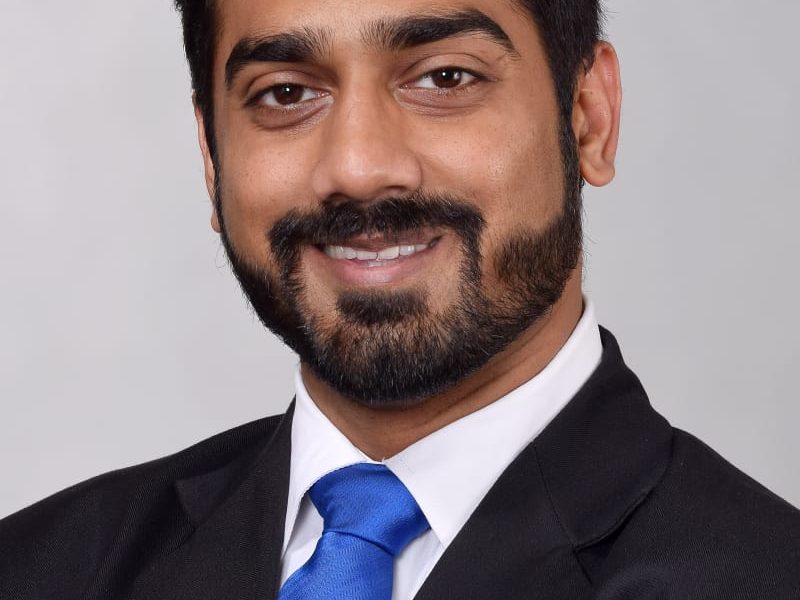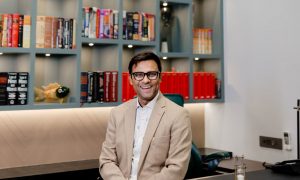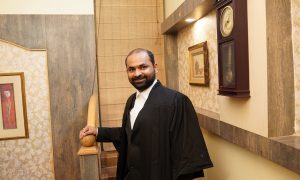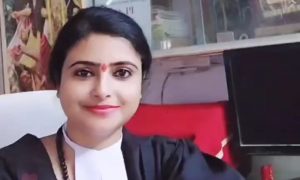This interview has been published by Priyanka Karwa and The SuperLawyer Team
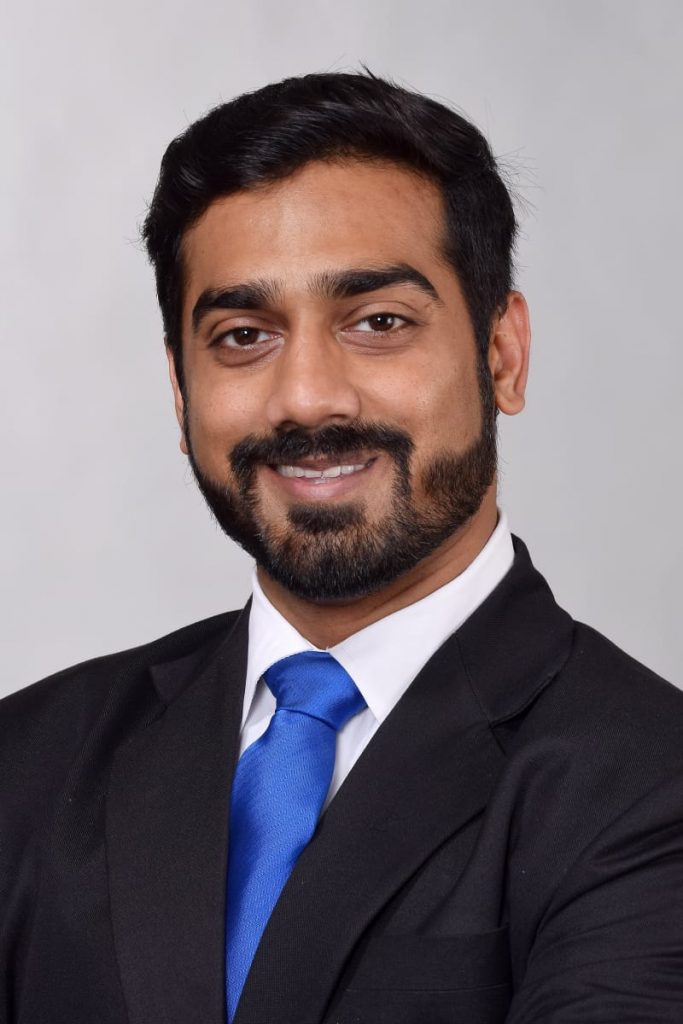
You come from a family with a rich tradition of military service, yet you chose a different path as a lawyer. Can you tell us about the factors that influenced your decision to pursue a legal career, particularly in areas like intellectual property and media law?
Well I didn’t really choose a path of lawyer to be completely honest, life just in a way forced it upon me I believe. In my opinion I am a classic case of ‘Failure by-chance Lawyer’. Allow me to give some context to this. Yes, I do come from a family that has given three generations of Military personnel dating all the way back to my Great-grandfather to serve in the British-Indian Army. Naturally coming from a family where the only thing or people you know are Military personnels, it’s obvious that you would aspire for the same thing yourself.
So right after my graduation in B.com, I gave my CDS (Common-Defence Services) exams cleared that and went on for my SSB (Service Selection Board), and I was so sure that I was going into the Indian Army, but this is where my story changes because I got screened-out i.e. rejected, by the Indian Army. This was all happening in 2013, and after I got rejected by the Indian Army I had no idea what I was supposed to do next because there was never a ‘Plan-B’ in place. Now given my educational background I felt that the only options I had was either pursuing Chartered Accountancy (CA) or going for a Master of Business Administration (MBA), just like what all of my class-mates were doing. Thankfully, and this is something I really pride myself on is that during my B.com, I made some amazing friends one of whom is Shona Jacob, owner and proprietor of the hospitality brand “Love Made Edible” and she advised me to not to go along-with the herd, in-fact I still remember the word till this date that convinced me to be a lawyer which was “You have a very strong command over the English language, You should really thing about pursuing Law as a career”, and that where the idea to become a lawyer came from, by a friendly advice.
Thankfully, my score(s) at the time of graduating B.com were good enough to get me into ILS, Pune, in the three (3) year LLB course. Now, I had no idea what Intellectual Property law was, let alone media law when I got into law school. I had more affinity towards Family-Law and was convinced in 2013 that I would pursue Family-Law as a career, but here again thanks to a friend that was Disha Dewan who was also my batch-mate and daughter of Dr. Mohan Dewan of the Law firm R.K. Dewan & Co., I was introduced to the basic concept of what was Intellectual Property Law. Thankfully, ILS has a pro-discussion culture so my batch was always discussing and debating concepts of law and latest developments, and IPR happened to strike a chord with me primarily because of its fluid nature. While the Statute itself was set, the application and understanding(s) that stems from IP matters are extremely fluid and always subject to interpretation be it Trademark, Copyright, Designs etc, which was made more and more clear to me when I read judgments, specially those from the Delhi High Court. The type of IP Judgments that would come out from Delhi, it was like every day there is a new comment or understanding provided by the Courts in the field of IP. This great big puzzle that was known as Intellectual Property Rights was just so much fun that I knew that this is what I want to specialize in some day, and this speculation got further confirmed when I interned at ITAG, Kolkata and R.K. Dewan & Co.
As to Media Law, well that happened because of curiosity to put it simply. When you start understanding a subject and your basics start to get better, sooner or later you start to look at every area where the application of that subject may come. I had an interest in IPR and I would always wonder what other areas can IP have an impact in, and the immediate conclusion that came to me was ‘Films’. But my transition into Media Law didn’t happen until later in 2019, when Mr. Ameet Naik and Ms. Madhu Gadodia found me and decided to place a gambling bet on me to see whether an IP Specialist could transition over to becoming a Media Lawyer. One has to appreciate the similarities and the dissimilarities between IPR and Media Law, while IPR was fluid, Media Law was completely dynamic and it was always changing, and unlike IPR, Media Law does not have an identified set of law(s), if anything Media Law is more common law and equity based which makes the scope to interpret and apply the law(s) during a media dispute more wide and challenging in my personal opinion. The big puzzle which I was already use to solving in the field of IPR just got substantially bigger the moment I was introduced into Media Law because that ultimately also resulted in me being exposed to and working in matters concerning the laws of Arbitration, White Collar Crime, IT Law etc, it really just broadened my horizons and exposed to so many challenges which has been nothing but fun, frustrating at times, but fun nonetheless.
Transitioning from a Bachelors-in-Commerce to a law degree is quite a shift. What motivated you to make this transition, and how has your commerce background influenced your legal career?
Well I personally don’t think that the transition from B.com to Law was a very big shift for me because, while I was pursuing my B.com we were required to study the erstwhile Company Act 1956 (now 2013) and I was also pursuing an Advanced Diploma in Advertising and Marketing from my college (H.R. College, Mumbai) wherein we were introduced to concepts of “Trade Mark” and “Copyright”. So in a sense there was some minor exposure to subjects of law during my B.com which I think in hindsight did help somewhat. However, pursuing a career in law was definitely not in radar at any point in time while I was pursuing my graduation in B.com.
Funnily enough I think the three elements that motivated me to pursue a career in law and just go all in were “Dumb-Luck”, “Desperation” and “Disaster”, I call this the “3D” elements of my career and by no stretch of imagination is this a bad thing. In fact I believe that the best of things to come are a product of the bad times. For example, getting rejected by the Indian Army was a Disaster for me as I never had a second thought or plan about what I would do in case I never made it into the armed forces. My friends suggesting that I pursue law as a career was pure Dumb-Luck, and because I had no other plans my Desperation to excel at something made sure that law as a career worked for me. But above all else I think the reason why I stayed motivated to make law as a career for myself was because of my parents who never pressured or doubted me at any stage of my life or while I was pursuing law, it really is very important to have a good support system as it definitely makes things some-what easier.
I think for me personally my background in commerce didn’t really kick-in and started helping till I had made a transition into Media Law. The practice of Media Law has a substantial portion fixated on commercial transaction, liabilities and deal structuring. Thankfully because of my background in commercial subjects my ability to understand and cater to client’s whether it’s in financial transactions or disputes, substantially contributes towards the same. This is a personal opinion but I feel any Attorney today practising commercial laws who has a finance or a commerce background does indeed have a minor edge as compared to his/her colleagues who may not have had that type of a training prior to pursuing a career in law.
During your time in law school, you engaged in multiple internships in different cities. How did these internships shape your understanding of the legal profession, and how did they ultimately lead you to your current specialization in IP and media law?
Thankfully I had good seniors in law school with whom I was living with in the Hostel those days, and when you have access to your seniors you can discuss your queries with them and understand what others before you have either done right or wrong. While I was in ILS, Pune we had lectures from 7am to 11am, after that you had a substantial portion of the day left to you to choose what you want to do. I had two very clear options in front of me, either after classes I could participate in extracurricular activities or choose to intern in Pune itself and attend lower court proceedings and gain an understanding as to what is the practical side of the legal career. While both were equally good options, I had already done my fare-share of extra-curricular activities while pursuing my B.com, I wanted to do something different and so I chose the later option and chose to intern at law firms or chambers of practising Advocates while in Pune. During course breaks I would make it a point to intern in a different city which would usually either be Mumbai, Delhi or Kolkata.
I think when I look back during my time when I was interning what set me apart was the fact that I took an initiative. I would make it a point to go up to the Partners and Associates and introduce myself properly and take an active interest in learning about them, this resulted in familiarity which resulted in the team’s to remember me while assigning projects. Now the next part that came was always the most crucial part during my internships which was to always provide good solid work, which meant putting in extra effort than normal, but it’s effort that puts you in a different light than compared to the rest because the moment the Associate’s would take notice of my work or my ability to understand the subject I would always end up getting access to better work and more details from the Associates.
This process not only ultimately led me to get a Pre-Placement Offer (PPO) from R.K. Dewan & Co., but it also framed my way of thinking because I realised that it’s not enough to just work hard, you also need to know how and when to work smart. This same philosophy and work-ethic which I had moulded during my internship days was later on developed and which greatly helped into my professional career and it’s the same thing which also helped me when I transitioned from IP into Media Law. When one thinks about it, internships can be a great way to discover more about yourself at-least that’s what happened for me.
You spent a significant part of your career at R.K. Dewan & Co, where you worked with Dr. Mohan Dewan and Mr. Ameet Deshpande. How did your experiences there, especially in Pune, shape your early career and the skills you developed as a litigator?
Luckily enough I was always offered a repeat internship at R.K. Dewan & Co, during my law school which led to the team knowing me fairly well and they had a good idea as to my capabilities at the time. So when an opening came up in the Litigation Team, Dr. Mohan Dewan was very kind enough to actually ask me if I had any interest in joining them. Now I was sure I wanted to pursue a career in IPR, I just didn’t know at the time whether I would want to be litigator but sometimes in life you just have to take a leap-of-faith, and thankfully this leap-of-faith continues to pay off till date.
Working with Dr. Mohan Dewan and Mr. Ameet Deshpande, was like an introduction to a crash course of two very different subjects at the same time and you had to catch-up really fast in order to keep up with them. Dr. Mohan Dewan is very particular about what may be your concepts and thoughts when understanding a legal matter and he is equally that much invested when you are putting in words to paper. Likewise, Mr. Deshpande was very focused on the proper interpretation and application of the Civil Procedure Code that we would adopt for our litigation matters. My time in Pune and in New Delhi with R.K. Dewan & Co., was just a wealth of knowledge and experience at the time because unlike in Mumbai where there is a Counsel culture, Pune and Delhi do not operate in the same manner. I was responsible for drafting everything from top-to-bottom and I was expected to argue the as-well, I did not have a safety system like we have in Mumbai where experienced Counsels are engaged to assist in achieving the best possible outcome in a matter. It was very much a sink or swim type of situation, and thankfully I had seniors in the form of Dr. Mohan Dewan and Mr. Deshpande who ensured that I would never sink.
I think at the time while this was happening, I was not very appreciative of it but today when I look back how my career trajectory has been till now my entire core structure as a lawyer is substantially contributed to by Dr. Mohan Dewan and Mr. Ameet Deshpande, and how they took the effort to train as Litigators. In-fact its this very same training that has often come to my aid on several occasions when I’m assisting some of the best Arguing Counsels such as Mr. Ashish Kamat, Mr. Mr. Rashmin Khandekar or Ms. Megha Chandra.
You then made a transition to Khaitan & Co in Mumbai, where you worked with Partners in the IP-Litigation team. Could you share some insights into the challenges and learnings you gained during your time there, particularly in terms of working under pressure and delivering results?
My time at Khaitan & Co., was a very interesting and an important milestone in my career I feel. When the opportunity to work with the IP Team in Khaitan & Co, Mumbai, came along I was extremely excited because I got to work with some great partners such as Nishad Nadkarni, Adeesh Nargolkar and Smriti Yadav. All three (3) partners had different styles and diverse range of work, while Nishad had the most litigation matters with him, Adeesh would have technical matters before the IPAB (now dissolved) for trademark rectification or patent cancellations and Smriti would have IP Registration and Prosecution related matters, and the learning was vast and filled with opportunities which the Partners were always willing to provide and accommodate you with.
I think the first challenge I immediately faced was the fact that the Partners in Khaitan would force you to call them by their first name only which was a complete culture shock to me, and a pleasant one to add. In terms of the professional challenges that came my way during the Khaitan & Co, was the fact that I was provided with multiple opportunities to work not just in matters in Mumbai but with teams based in New Delhi and Kolkata as-well. This wide exposure allowed me to understand how each team would function and what were their basic requirements and how best to deliver, as per expectations.
Now naturally working with three Partners and multiple teams in different teams is an amazing exposure that also invites pressure for delivering the best possible outcome in the time-frame allotted. This will at times force an attorney to re-think his/ her usual course of strategy while working. Now pressure is not necessarily a bad thing because oftentimes the right amount of pressure makes one push beyond their standard limits and perform or achieve in a manner which was previously unexplored and which was the same thing that happened to me. Thankfully, I had some really great Reporting Partners, especially Nishad who would always remain calm despite including in those moments when I would make mistakes and he would have the presence of mind to not only let me know where I went wrong but what I could have also done to avoid it.
Your journey led you to Naik Naik & Co, where you transitioned from being an IP lawyer to a media lawyer. What prompted this shift, and how did it broaden your expertise in a wide variety of laws and matters?
I always thought that IP is connected to Media Law as they virtually have the same basic foundation. After spending some time working in IPR I just wanted a new challenge and wanted to try something new. Luckily, at the time Naik Naik & Co’s media Litigation team had an opening and my interview was taken by none other than Mr. Ameet Naik himself, which is very rare because he’s generally not involved in the interview process.
Mr. Naik at this point had the same question as why I would want to transition from IP to Media Law. He understood my reasons for wanting a new set of challenges and wanting to do something different and more than what I was already doing. I think it was the risk-taking factor that perhaps impressed Mr. Naik and Ms. Gadodia, and they were kind enough to offer me a position in Ms. Gadodia’s team.
The moment I was brought into Naik Naik & Co, the initial years had nothing to do with IPR, I was made to attend to matters before the Mumbai-MCA, Co-operative Society Courts, Magistrate Courts for Cheque Dishonour matters, Arbitrations for Media production companies. It was this wide range of work that allowed me to really expand my horizons beyond IPR and learn and work in subjects in which I hadn’t had the opportunity earlier. Every matter that deals with a different subject requires a different style of thinking be it in IPR, Arbitration, IBC, Cheque Dishonour Disputes and it was this exposure provided to me by Naik Naik & Co., and specially due to the faith of Mr. Ameet Naik and Ms. Madhu Gadodia, that I was able to expand my horizons and understanding of the various aspects of law. It’s no secret that work-culture of Naik Naik & Co., of throwing their Associates in the deep end for handling and attending to matters is actually the very thing that makes Naik Naik & Co., Associates so unique because the amount of exposure to work and pressure we withstand is second to none and which results in some of the best Associates getting trained from our firm.
You’ve been involved in some notable cases during your time at Naik Naik & Co. Can you share some key highlights or challenges you encountered while handling cases like Amitabh Bachchan’s Personality Rights John Doe Action or the “The Kerala Story” Pan India Litigation?
I have actually had amazing opportunities to be associated with some of the most unique cases handled by Naik Naik & Co., because of the vision that Mr. Ameet Naik has instilled in us. What most people don’t know is that the Amitabh Bachchan Personality Rights case did not happen over a course of a few days or months. In-fact the groundwork for the suit had begun during the Covid period. It was Mr. Naik who was the one who first understood that the legal framework and judiciary was ready and, in a position, to pass the first Personality Rights-John Doe order, and the only person on whose behalf we who could institute such a case who would be undeniable for this type of an action was Mr. Bachchan. This matter had Mr. Ameet Naik, very much involved with us and we were able to understand his plan of action as to how he wanted this particular case to be framed and what instances of third-party violations had to be highlighted before the Delhi High Court in order to maximise the chances of obtaining the desired result. This matter particularly for me was a great learning experience because not only was I put in a leadership role for attending to this matter but I was also led to understand the key requirements for a John-Doe style action and how important the structuring of a case was.
In contrast to the Amitabh Bachchan Personality Rights case, the Kerala Story matter which saw multiple litigations coming out in different territories in India was hands-on live master class experience on how to get prepared in a Suit in a matter of few minutes. The reason why I say this is because Media Law litigation is extremely volatile and dynamic and a Media Disputes Attorney will have a very short time to prepare for a case, usually just one day before the date of hearing because for some reason people just love filing last minute actions, but the Kerala Story litigation was just another level itself. In this matter I got personally see Mr. Ameet Naik argue the matter before the Kerala High Court (via VC) and before the Supreme Court before the CJI, what’s also unique is that while these matters were happening we were also getting notifications of multiple litigation proceedings being instituted in different High Courts in different States. All of these matters were just beautifully steered and handled by Mr. Naik and Ms. Gadodia, in which I had a front row seat to be involved and learn from the best, which has immensely contributed to my understanding and growth as a lawyer.
As someone who has progressed in the legal profession and gained recognition for your work, what advice would you offer to fresh law graduates who are just beginning their legal careers?
When I was starting my career as an IP Specialist in R.K. Dewan & Co., a lot of people shared their opinions with me on how starting your career in a specialization in a particular field as a very bad idea and how I would never get to learn enough. Then when I made the decision to transition from IPR into Media Law, I had to again hear the opinions of people who suggested that after having gained a specialization I would not be able to cope-up and work in general law. Both opinions, while valid, turned out to be wrong because I was able to prove that they don’t apply to me.
The reason why I share the above is because if there is a law student out there or a fresh graduate and if you are feeling the pressure of doing something safe or tried and tested then they should know that they don’t have to bend according to these so-called pundits’ opinions. No one can measure your ability or know the extent of your affinity towards a subject better than you alone. Have faith in yourself and be bold enough to take a risk with your career. There are no conventional or unconventional paths to take in law or in life, you are walking your own path alone and you alone can decide where you want it to lead you.
On that note let me leave you with Steve Job’s quote stated in 2005 during the Stanford commencement address “Stay Hungry, Stay Foolish”.
Get in touch with Sujoy Mukherji —

